Course Director:
Dr. Mladen Kezunovic and Dr. Tom Overbye
Course Date: November 12 – 14, 2019
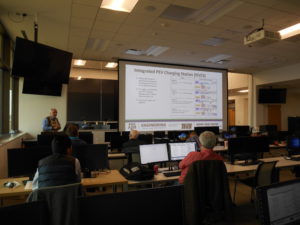
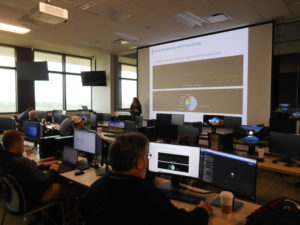
Description
The grid resilience is a concept that merges the traditional reliability studies with predictive analytics, which combined leads to a robust power system operation are allowing the continuity of electricity supply. As the major disturbances occur, a resilient system should be able to either ride through or restore its service timely. This course lays out some major resilience criteria, and offers detailed discussion of related solutions at the various levels of the power system design,implementation and exploitation: operations, planning, outage and asset management,micro grids, distributed generation, and markets. The course objective is to provide the attendees with examples of advanced solutions with demonstrations illustrating the resilience improvements. Collectively the three course instructors have decades of experience in doing electric power system and market studies, including engineering education (Hours: CEU 2.1,PDH 21).
Who Should Attend
The course is designed to provide a comprehensive coverage of the fundamentals of the resilience design, planning and implementation, as well as criteria for performance assessment of
the power system resilience. It is ideally suited for electrical engineers who have minimal experience in the concepts of resilience, including new graduates and engineers from other areas of the utility industry. The course will also be useful for managers who would like to gain and understanding of the resilience issues, for those working in the policy and regulatory areas, for academics wishing to gain a practical understanding of the resilience concepts, and for graduate students interested in careers in the power industry.
Topics
- Overview of the electric grid including its structure and operation
- Differences between resilience and reliability
- Causes of grid failure both small and large
- Impact of relaying on grid resilience
- Metrics for reliability and resiliency
- Planning and design for resiliency
- Operational strategies to enhance system resiliency
- Hands-on: Grid planning for resiliency
- Hands-on: Grid operation
- Industry resilience case study: Reducing the grid risk due to geomagnetic disturbances
- Strategies for reducing the harmful consequences from a major blackout
- Grid restoration following a major blackout
- Regulatory and market considerations for enhancing grid resiliency
- The role of ancillary services in mitigating resilience threats
- Planning studies aimed at resilient designs
Instructors
Mladen Kezunovic, Regent Professor and Eugene E. Webb endowed Professor in the Department of Electrical and Computer Engineering at Texas A&M University
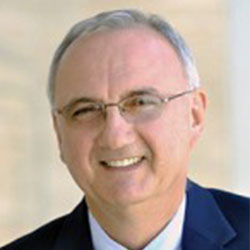
- Before his academic career, employed by Westinghouse Electric and Energoinvest Company in Europe developing digital substations
- Principal Consultant and CEO of XpertPower Associates, a firm specializing in world-wide Smart Grid services
- Author of a widely used books on protective Relaying and on Time-Synchronized Measurements in Power Systems
- Recipient of the IEEE Educational Activities Board Standards Education Award, IEEE Life Fellow
- Fellow, Honorary and Distinguished Member of CIGRE
Tom Overbye, TEES Eminent Professor in the Department of Electrical and Computer Engineering at Texas A&M University (TAMU)
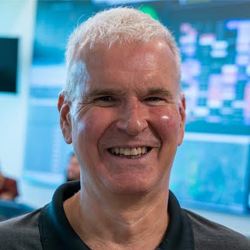
- Before starting his academic career, employed by Madison Gas and Electric Company, working in their planning and operations departments
- Original developer of PowerWorld Simulator (a widely used power system planning tool) Co-founder of PowerWorld Corporation
- Author of a widely used Power System Analysis and Design book
- IEEE Power and Energy Society Outstanding Power Engineering Educator Award, IEEE Fellow
- Member of the U.S. National Academy of Engineering
Julia Matevosyan Lead Planning Engineer, Resource Adequacy, System Planning, ERCOT
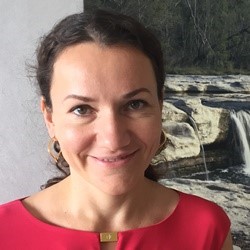
- PhD and Post-Doctoral research on Coordination of Wind and Hydro Power in Areas with Limited Transmission Capacity, at Royal Institute of Technology, Stockholm Sweden
- Before starting at ERCOT, employed by Parsons Brinkerhoff and Sinclair Knight Merz working primarily on grid interconnection and grid code compliance studies for wind power plants in the UK
- Member of Technical Advisory Committees for a number of projects related to synchronous inertia, frequency performance and flexibility needs with growing share of renewable and distributed generation carried out by Electric Power Research Institute (EPRI), Hawaiian Electric Company (HECO), North American Electric Reliability Corporation (NERC), National Renewable Energy Laboratory (NREL), Lawrence Berkley National Laboratory (LBNL), U.S. Department of Energy (DOE), Xcel Energy, EU SysFlex project
